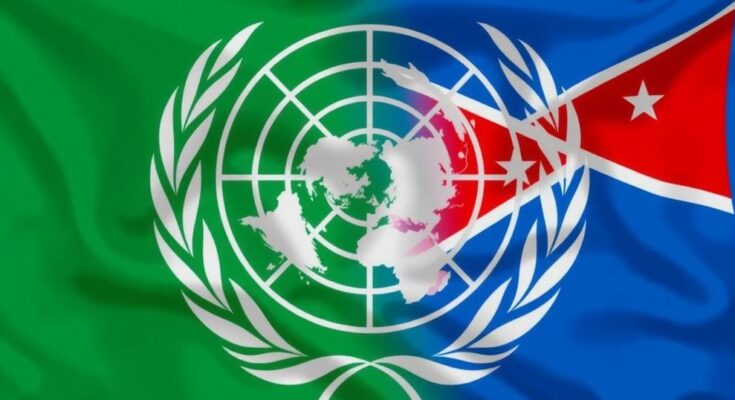Papua New Guinea has declared a boycott of the upcoming UN climate summit, citing the talks as a “waste of time” filled with empty promises from major polluters. The country’s Foreign Minister, Justin Tkatchenko, criticized the lack of progress and indicated a shift toward bilateral climate agreements, particularly with countries like Singapore. This stance signifies a growing frustration among smaller nations with the COP process and its perceived ineffectiveness in addressing urgent climate issues.
Papua New Guinea has announced its decision to boycott the upcoming United Nations climate summit, asserting that the global discussions on climate change have devolved into a “waste of time” characterized by unfulfilled promises from major polluters. This move is notable as it is uncommon for a nation to fully dismiss such a critical global event. Foreign Minister Justin Tkatchenko expressed frustration ahead of the COP29 summit scheduled for November in Azerbaijan, stating, “There is no point going if we are falling asleep because of jet lag because we are not getting anything done.” Criticism of the annual COP summits has been rife, but the outright dismissal by Papua New Guinea represents a significant departure from usual diplomatic stances. Tkatchenko highlighted the futility of current negotiations, stating, “All the big polluters of the world promise and commit millions to assist in climate relief and support. And I can tell you now it’s all going to consultants.” Papua New Guinea, which is home to one of the world’s largest rainforests, faces acute vulnerabilities to climate change, exacerbating its existing economic challenges. Tkatchenko lamented the lack of tangible outcomes from previous summits, referring to COP as “a total waste of time” and voicing concerns that his country, as the third-largest rainforest nation, bears the burden of pollution from larger economies without sufficient acknowledgment or action. The COP process, which played a significant role in establishing the Paris Agreement in 2015, has faced mounting scrutiny over the years. Critics allege that significant polluters leverage their power to obstruct meaningful advancements in climate commitments. Despite the existence of adaptation funds aimed at supporting developing nations, many argue that bureaucratic delays hinder urgent action. Papua New Guinea’s withdrawal from COP discussions has resonated within the Pacific Island nations, with Tkatchenko indicating that lesser-known nations are also supported in their grievances regarding the effectiveness of such talks. Instead of participating in the COP, Papua New Guinea intends to pursue independent climate agreements, with negotiations already underway with Singapore to collaborate on mitigating carbon emissions. The recent frustration surrounding funding agreements for poorer nations further emphasized the need for effective climate action distinct from the convoluted processes of COP. By seeking bilateral relationships, Papua New Guinea aims to implement more direct solutions to its climate challenges.
The United Nations climate summits, known as COP (Conference of Parties), serve as critical platforms for countries to negotiate legally binding climate commitments and discuss collaborative efforts to combat climate change. Established notably with the Paris Agreement in 2015, these convenings have historically included both developed and developing nations, though the efficacy of outcomes has come under scrutiny. Countries like Papua New Guinea, which possess extensive natural resources such as rainforests, are particularly affected by climate policies and the failure of larger nations to comply with sustainable practices. The backdrop of rising global temperatures and severe environmental issues underscores the urgency for constructive and impactful negotiations.
In summary, Papua New Guinea’s boycott of the UN climate summit underscores the growing frustration among smaller nations regarding the inefficacy of global climate negotiations. The assertion that major polluters continue to evade substantial responsibility, coupled with the desire for more direct and actionable climate agreements, highlights a critical inflection point in environmental diplomacy. The decision reflects a broader sentiment among vulnerable nations seeking immediate and tangible measures to address climate change rather than enduring cyclical discussions with little result.
Original Source: www.voanews.com




